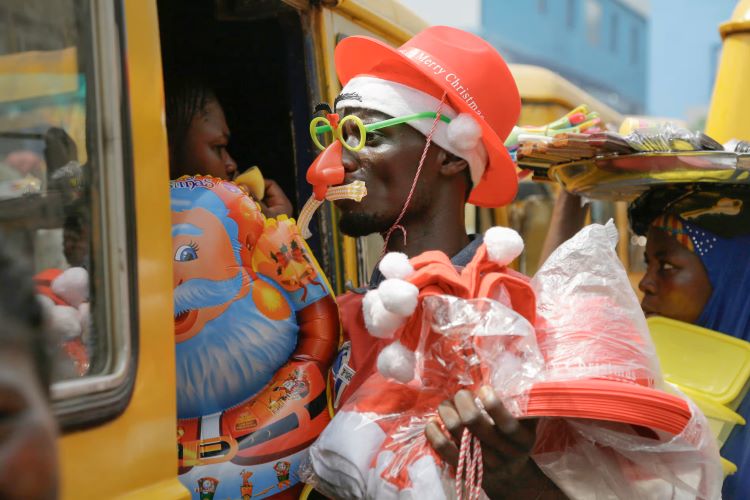The Long Wave: Christmas celebrations across the diaspora

By Nesrine Malik, The Guardian
From Nigeria to Trinidad, ’tis the season when our writers share stories of their favourite festive traditions. Plus, how a diaspora influx has led to soaring prices in Ghana

[…]
There is a near consensus across parts of west Africa that today’s Christmases are a shadow of what they used to be. In a region full of flamboyant characters and where people find any excuse to party, Christmas presented the best reason to do so, regardless of your religion or social standing. In the 1990s and 2000s, Christmas was a movie, especially in small Nigerian towns, and the stars were children in working-class and middle-class households.
Nigerians love to put small canopies in the street when there’s a celebration, and on Christmas Eve these were everywhere, with cheap banners by the community association announcing the carnivals, as if the loud music and empty or full crates of beer and malt weren’t enough announcement. Nearby, children would be flying kites with new hairdos or clean cuts, singing “Today na watchi-night”, referencing the Pidgin term for an eve.
After short church services on Christmas morning at which people sang carols, it was common to see children wearing colourful plastic sunglasses and new outfits so bright they lit up rooms, going from house to house of neighbours, friends and relatives to eat an array of meals. The undisputed superstar was fried rice, a greenish-yellow dish that in its heyday used to contain small pieces of beef liver, curry powder and green peas – always accompanied by hearty portions of creamy coleslaw.
[…]
Like most deep southern families, many of my aunts and uncles, cousins and other extended family members participated in the great migration, during which an estimated 6 million Black Americans moved from the south to the north, west and midwest. During Christmastime, those family members descend to our ancestral lands in south Mississippi, where my family has lived for at least six generations. The kitchen is full and hot, as we bustle around, baking cakes and pies; making chicken and dumplings, dressing and collard greens; catching up and chatting.
Keep reading to discover more holiday traditions.
Learn about Africans before captivity.
Comments Are Welcome
Note: We moderate submissions in order to create a space for meaningful dialogue, a space where museum visitors – adults and youth –– can exchange informed, thoughtful, and relevant comments that add value to our exhibits.
Racial slurs, personal attacks, obscenity, profanity, and SHOUTING do not meet the above standard. Such comments are posted in the exhibit Hateful Speech. Commercial promotions, impersonations, and incoherent comments likewise fail to meet our goals, so will not be posted. Submissions longer than 120 words will be shortened.
See our full Comments Policy here.